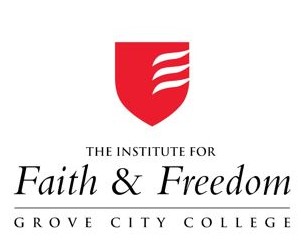Rand Paul’s Losing Bet

On “Police Militarization”: Bad Policy, Worse Politics
Rand Paul’s criticism of the “militarization” of local police departments may represent a sincere initiative by one of the Senate’s more thoughtful members but it also amounts to bad policy and worse politics. As with his calls for defense cuts and a pullback from America’s global leadership, the potential presidential contender hopes to woo youthful, liberal-leaning voters normally uninterested in Republican candidates. The more likely result, however, will mean alienation of traditional conservatives with few if any compensating gains on the left.
The chief problem with the Paul strategy is that issues of national security and local law-and-order resonate far more strongly with conservatives than they do with liberals. This distinction arises from the very Constitution which Senator Paul and fellow libertarians say they revere. That charter of liberty gives one preeminent task to the federal government: “to provide for the common defence,” as specified in the preamble. Protection from international threats remains the exclusive responsibility of the national authorities while every other duty is either shared with states and localities or left to them alone.
That’s why conservatives count as far more likely to prioritize defense and security issues in national campaigns. Liberals look to Washington for many things: regulating the economy, protecting the environment, redistributing income, improving education, providing contraception, fighting racism, even funding for the arts. Right-wingers, who frequently characterize themselves as “constitutionalists,” tend to look askance at such expansion of governmental objectives. Instead, we expect the feds to accomplish one big thing: keeping us safe from bad guys around the world who want to damage or destroy our country. Your local city council can’t handle that assignment, and neither can your state legislature. That’s why we rely on our elected represents in the nation’s capital to do the job, and why most conservatives vote for candidates who support a strong national defense and continued American preeminence on the world stage.
While progressives – particularly those under 30 – may disapprove of that robust international role, their political decision-making emphasizes other priorities. If you believe that Washington’s biggest challenge involves “economic justice” and closing the income gap (described by President Obama as “the defining issue of our time”) then you won’t consider a candidate who wants to cut back on federal social programs and opposes high taxes to redistribute income. That’s the problem for Rand Paul’s outreach to liberals: they may admire his hostility to the defense establishment or his criticism of aggressive police practices but they would never consider a candidate who favors a radical restructuring of the federal government to eliminate cherished goals like “universal health care” while backing a dramatic reduction of tax and regulatory burdens on corporations.
To counter this notion, some of Senator Paul’s libertarian supporters may cite Barack Obama’s success against Hillary Clinton in 2008, in which he beat the heavily favored establishment candidate because he emphasized his opposition to the Iraq war and his general support for a less-muscular foreign policy. But that success among committed Democrats depended on the near identical Clinton-Obama positions on the economic issues that matter most to progressives, allowing them to consider defense policy differences that normally play a much smaller role. Moreover, Obama’s dovish position may have helped him with ideological liberals in Democratic primaries but there’s scant evidence that it strengthened him among the general electorate. Even in 2008, a terrible year for the GOP, exit polls showed 70% describing themselves as “worried about another terrorist attack in the U.S.” and these voters actually gave a majority of their support to the unabashedly hawkish John McCain.
As to the policing issues that Rand Paul now hopes to inject into the emerging campaign, the Senator faces a substantive as well as a strategic problem. Every American acknowledges that national defense must be a national responsibility but very few conservatives would favor federal decision-making when it comes to local police decisions on neighborhood streets. Rand Paul serves in the United States Senate, not in the city council of Ferguson, Missouri, or anywhere else. According to the federalist approach normally supported by the American right, questions about the equipment and approaches employed by local law enforcement shouldn’t be dictated by Washington officials.
That’s especially true since those decisions have brought such spectacularly good results in recent years. According to the Bureau of Justice Statistics, the overall violent crime rate has plummeted steadily since 2001 – the year that Senator Paul identifies as the beginning of the “militarization” trend he decries. These brutal incidents declined from 504.5 crimes per 100,000 people all the way down to 386.9 in 2012- the lowest crime rate since 1970. It makes no practical sense to launch a new national campaign to override the decisions of local authorities in one of the few areas in which recent programs have produced unequivocally admirable results. By the same token, the counter-terror and security policies of the Bush administration, for the most part extended under Barack Obama, have succeeded for more than a decade in their most important goal: avoiding a major terror attack on US soil, which worried an overwhelming majority of Americans as recently as 2008.
Senator Paul’s attacks on such programs, and on current trends in local policing, may succeed in getting him the attention that any presidential aspirant ardently craves. But they won’t work in winning him hordes of liberal supporters and altering the electoral math in his favor, or in making Americans more secure from foreign dangers and domestic crime.




















